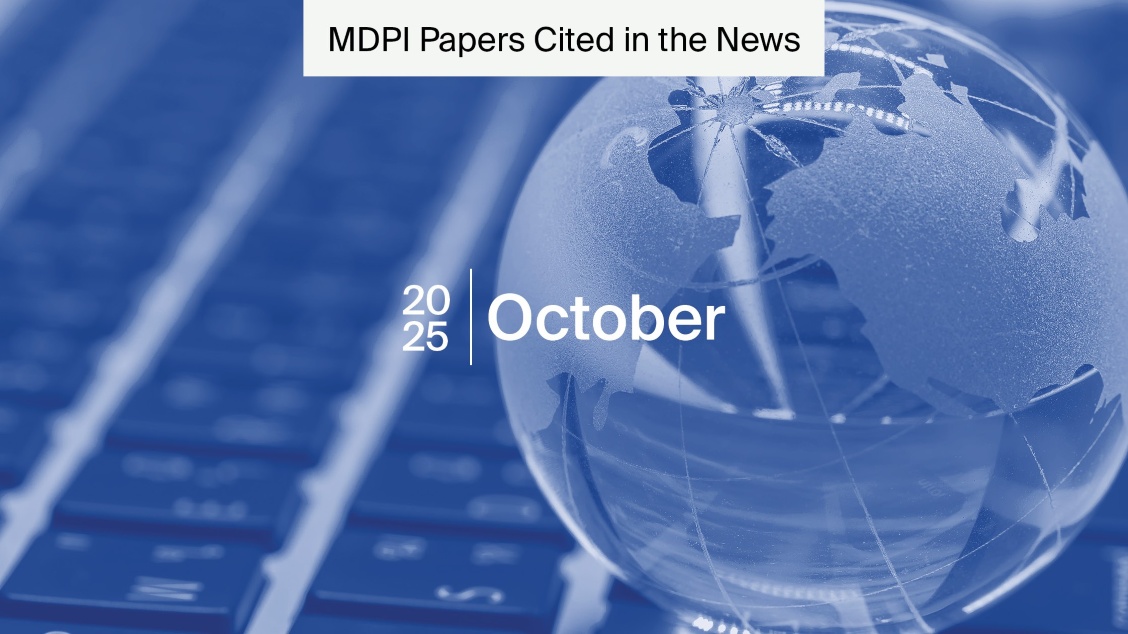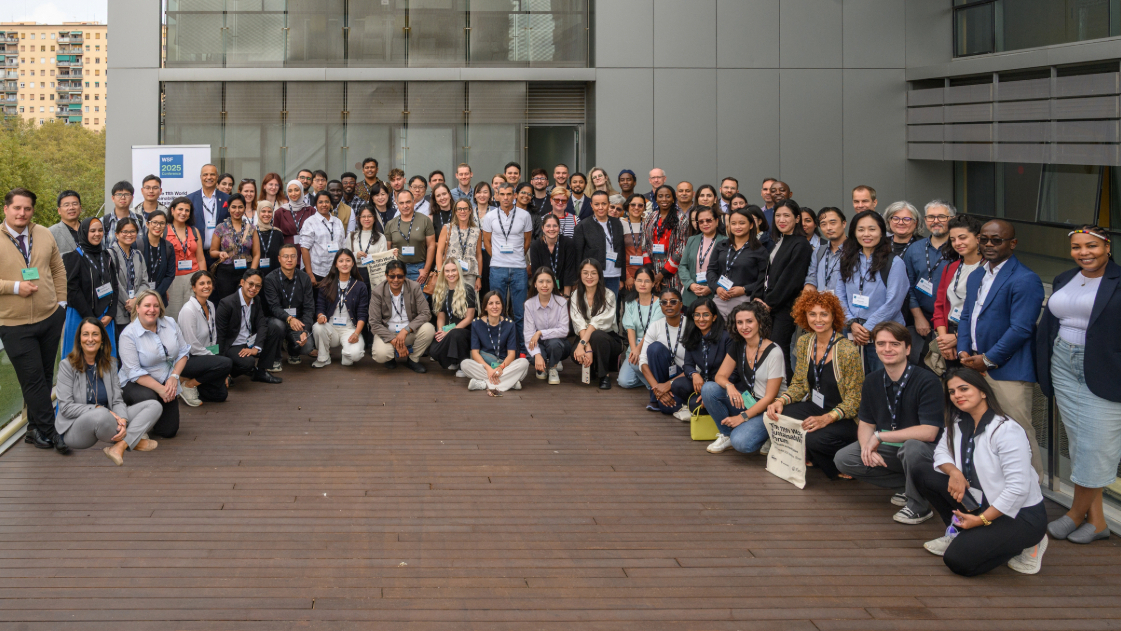
Insights from MDPI Top Pick Articles: October 2025
MDPI publishes Open Access research across a range of scientific topics, including biomedical sciences and ecology. This month, we gain insights into October’s Top Picks, where we explore novel and exciting research articles selected from the journal Birds, Journal of Ageing and Longevity, Journal of Fungi and Journal of Pharmaceutical and BioTech Industry.
Here we learn about the impact of wind farming on bird flight patterns, how harnessing in silico data could help aid the development of monoclonal antibody manufacturing processes, and more.
Original Article
Bird Survival in Wind Farms by Monte-Carlo Simulation Modelling Based on Wide-Ranging Flight Tracking Data of Multiple Birds During Different Seasons
Published in Birds

A new study shows that wind farming may be at risk of interfering with bird movements and migration routes. Wind farms, or wind power plants, consist of groups of wind turbines in a specific location, either onshore or offshore. They can cover extensive areas and generate tremendous amounts of energy. However, they can also cause disruptions to local habitats and natural life. This includes its impact on birds.
The study published in Birds discusses how wind farms can impact bird movement and survival, emphasising the importance of tailoring wind farm planning to the behaviour of local species and implementing Environmental Impact Assessments.
“We were inspired by observations of birds freely hunting between wind turbines. We had been watching them for over 20 years of monitoring of a territory with over 200 operational wind farms. It was important for us to understand if there were any patterns in this behavior.
Our study demonstrates that accurately modeling how birds use the airspace around wind turbines is essential for realistic collision risk assessments. By combining long-term GPS tracking with systematic field monitoring, we show that Common Buzzards (Buteo buteo) can adapt their flight behavior seasonally, resulting in a relatively low collision probability.
These insights highlight the need to integrate behavioural ecology into wind energy planning to ensure both sustainable energy development and effective bird conservation. – Nikolay Yordanov, first author of the study.
Original Article
Understanding Rehabilitation Providers: Knowledge, Attitudes, and Practices Toward Older Adults with Substance Use Disorders
Published in Journal of Ageing and Longevity (JAL)
A survey in North America finds that rehabilitation service provides may not be sufficiently prepared to treat older adults with substance use disorders.
The researchers of the study showed that only 52% of respondents had a familiarity with the risk factors associated with the disorder, while only 40% expressed confidence in treating older adults. Providers may lack knowledge of the aging process, leading them to assume that impairments are due to age and not to substance misuse.
The results of the study highlight ageism which may lie at the core of preventing sufficient training and education to providers on rehabilitation in older adults specifically.
The study also discusses the need for clear clinical guidelines, access to geriatric-trained professionals and implementation of training programs to ensure that all patients, regardless of age, obtain the rehabilitative care required for recovery.
Technical Report
Development and Optimization of Multi-Well Colorimetric Assays for Growth of Coccidioides posadasii Spherules and Their Application in Large-Scale Screening
Published in Journal of Fungi (JoF)
This new technical study describes a newly developed method for safer and more efficient antifungal research.
Coccidioides immitis and Coccidioides posadasii are fungi that can infect humans through inhalation of the spores into the lungs, causing flu-like symptoms such as coughing and tiredness.
The infection can cause acute coccidioidomycosis, also known as ‘valley fever’ and requires antifungal medication. The fungus has been found to grow in parts of California and southwestern USA; hence, valley fever occurs in these areas when people inhale the fungus found in the soil.
Research on these fungal species is particularly difficult due to rigid but necessary biosafety protocols. Biosafety level 3 (BSL-3) is the strict biocontainment precautions and protocols that labs must adhere to when handling dangerous pathogens that may cause disease.

The study describes a new way to grow the Coccidioides posadasii fungus whilst adhering to BSL-2 conditions.
“This study represents a major breakthrough by developing new safe and efficient methods to grow and test Coccidioides posadasii using an attenuated strain that can be handled under standard BSL-2 conditions.
We developed and optimized miniaturized 96- and 384-well plate assays that allow large-scale testing of potential antifungal drugs against the spherule stage of the fungus. These advances make it possible, for the first time, to perform high-throughput antifungal screening for Coccidioides, paving the way for faster discovery of new treatments for Valley Fever.” – Jose L. Lopez-Ribot, Professor at the Department of Molecular Microbiology & Immunology, South Texas Center for Emerging Infectious Disease
Original Article
Leveraging In Silico Data for the Development and Implementation of Multivariate Statistical Process Monitoring Models in Monoclonal Antibody Manufacturing
Published in Journal of Pharmaceutical and BioTech Industry
Monoclonal antibodies are used in biomedical research and treatment for various diseases, such as cancer and autoimmune disorders. Manufacturing them is a critical part of the pharmaceutical industry and follows rigid design and development processes for consistent production.
A study carried out by researchers from GSK R&D present the development of a multivariate statistical process monitoring (MSPM) approach to oversee the monoclonal antibody manufacturing process. This process uses in silico data, which are data provided by computer simulation programs, algorithms and artificial intelligence.
“Our study highlights the power of combining real and in silico data to overcome the challenges of limited batch availability in monoclonal antibody manufacturing. By leveraging multivariate statistical process monitoring (MSPM), we developed robust models capable of detecting process deviations early, enabling preventative interventions and improving operational efficiency.
This approach is especially valuable in low-data scenarios common in early-stage biopharmaceutical development. We hope our work encourages broader adoption of data-driven monitoring strategies to enhance process robustness and product quality in biologics manufacturing.”- Dr. Samira Beyramysoltan, an author of the study.
The MSPM approach enables the early detection of errors while providing corrective actions and methods to prevent further errors. The study reveals the benefit of using in silico data for monoclonal antibody manufacturing processes.
MDPI publishes articles across a diverse range of scientific topics. To read more top and novel research, access the full list of MDPI journals, where all articles are free to read and reuse immediately upon publication.










